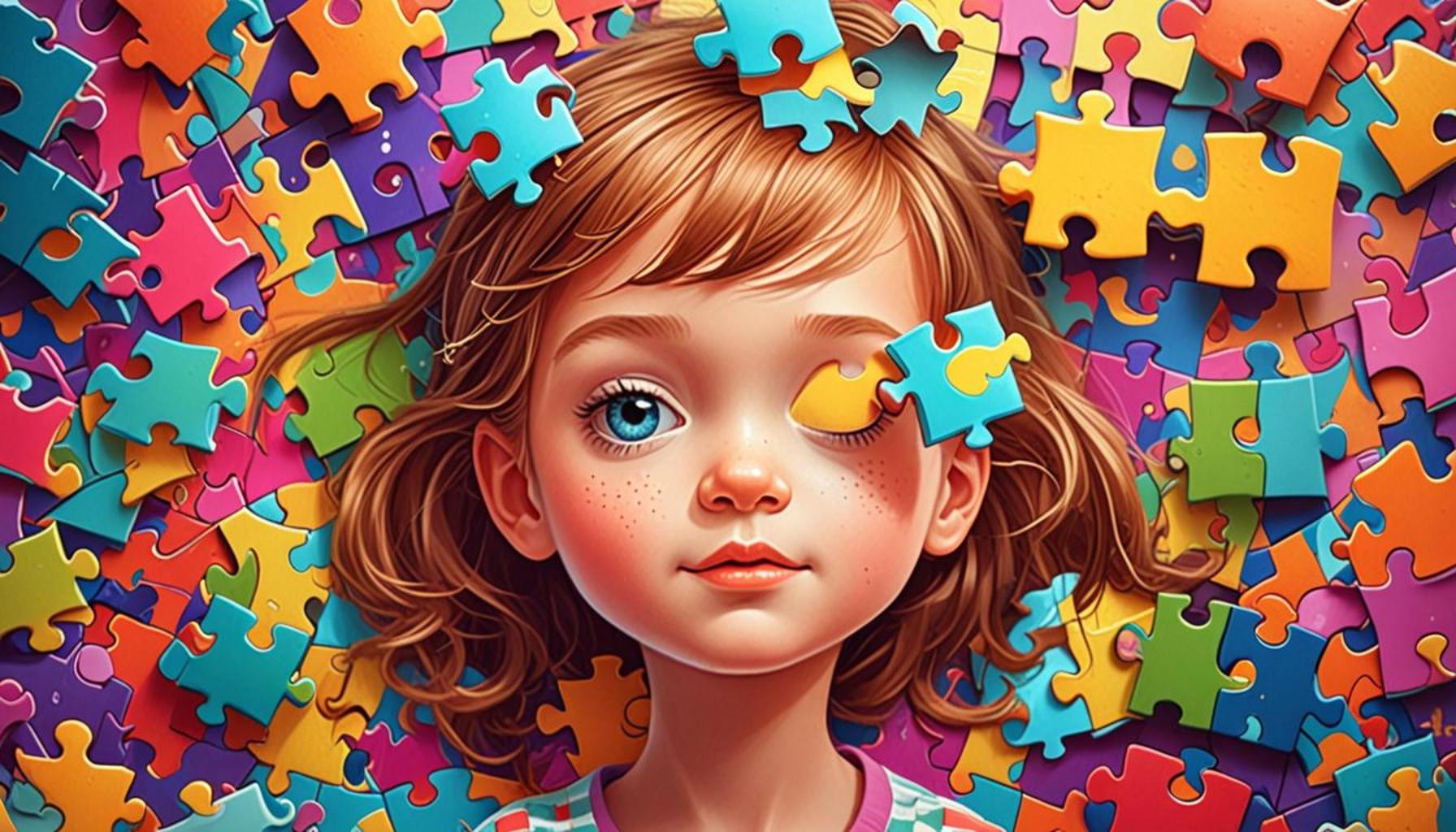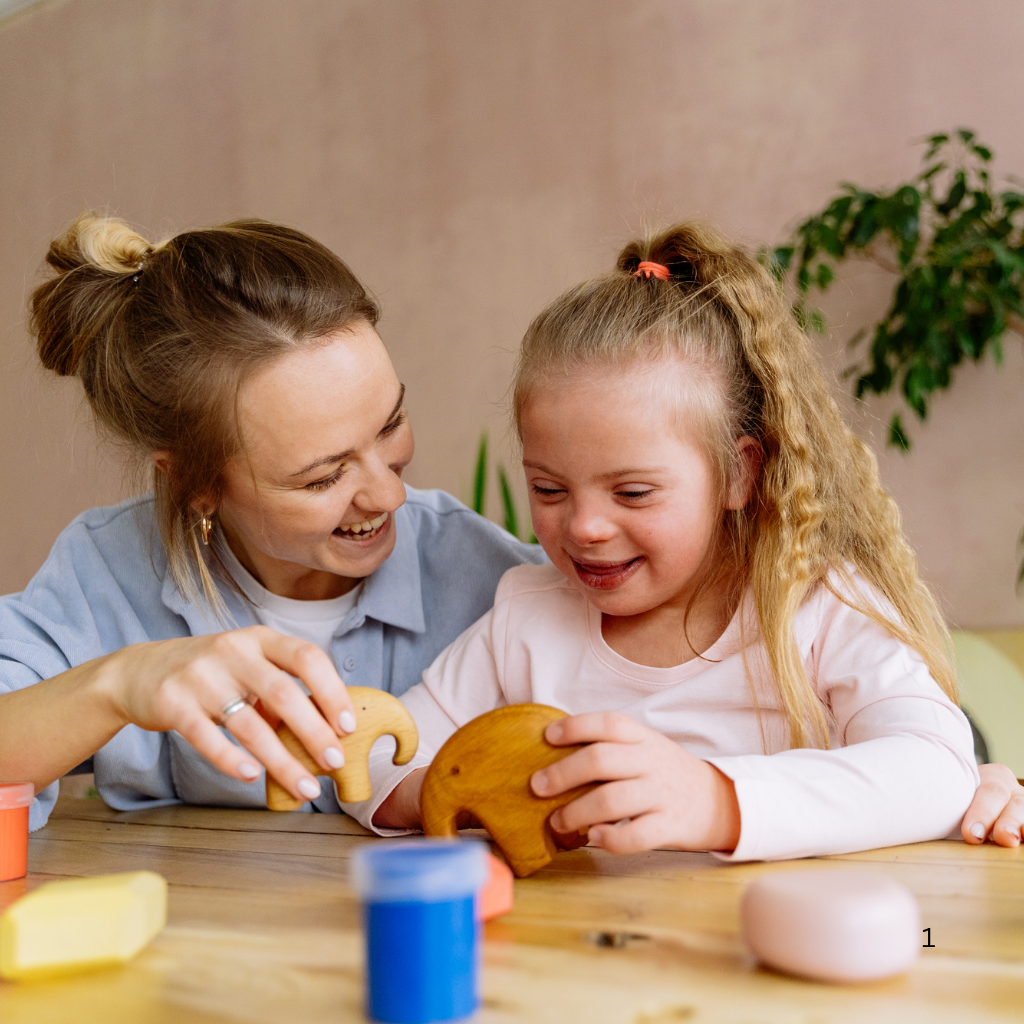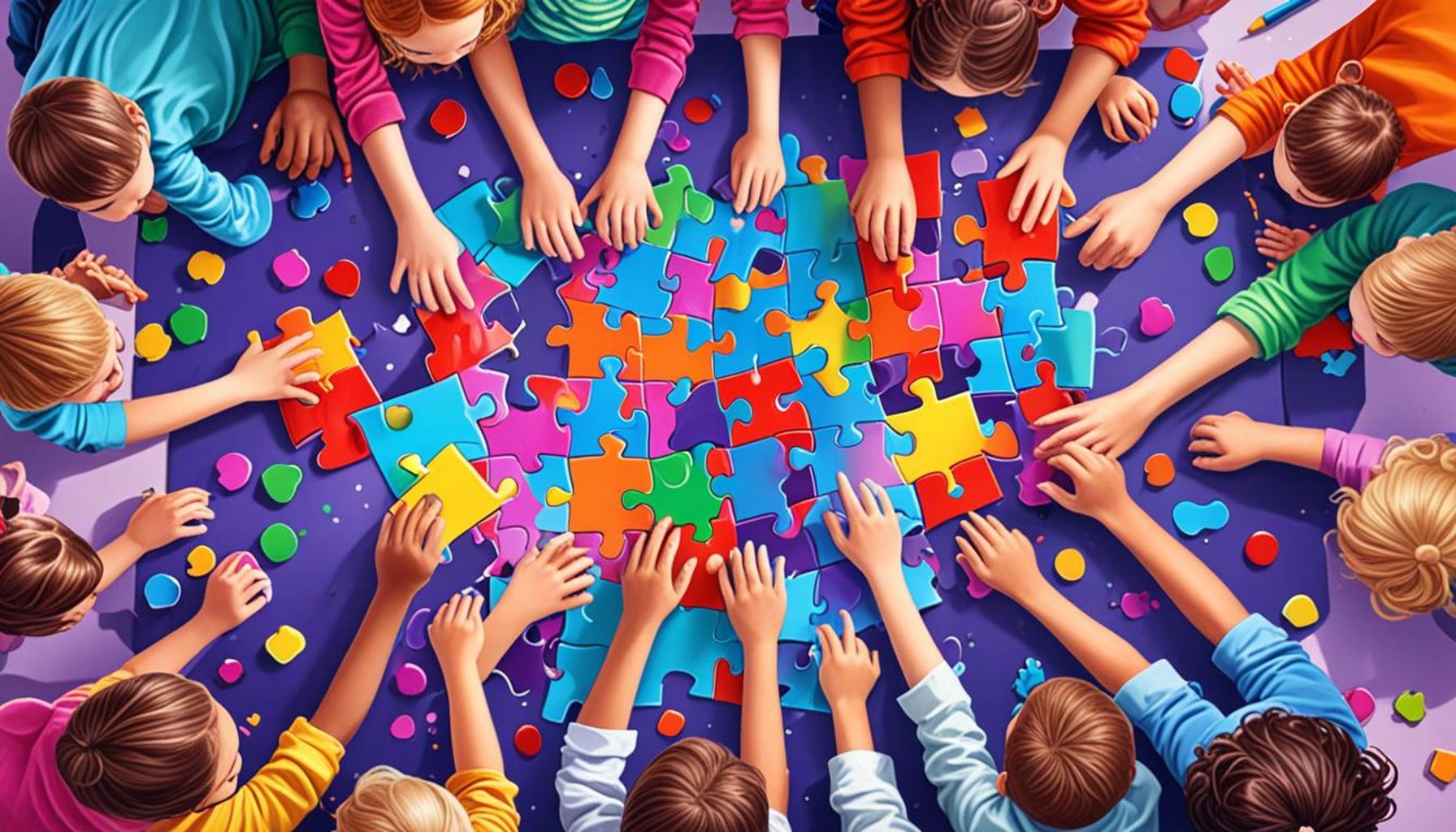The Impact of Puzzles on Children’s Memory and Attention

The Cognitive Advantages of Puzzles in Childhood
Engaging children in puzzles is not merely a fun pastime; it offers significant advantages for their cognitive development. As research continues to unfold, the benefits that puzzles provide extend far beyond mere entertainment, becoming essential tools for enhancing memory and attention skills in young minds.
One of the primary benefits of puzzle-solving is memory enhancement. When children work on puzzles, they are required to remember various shapes, colors, and patterns. This activity activates parts of the brain associated with memory retention and recall. For example, a child tackling a jigsaw puzzle must remember which pieces fit together, fostering both short-term and long-term memory skills. Studies have shown that children who regularly engage in puzzle-solving activities exhibit improved memory capabilities in academic settings, allowing them to retain information more effectively.
Another critical area of growth is attention development. Puzzles demand a level of focus and concentration that can significantly enhance a child’s ability to sustain attention on a task. As children sift through pieces of a puzzle, they learn to ignore distractions and concentrate on completing their goal. This skill is transferrable to other areas of learning, such as reading or mathematics, where prolonged attention and focus are crucial. Research has indicated that children who practice focused activities such as puzzles are better equipped to thrive in structured educational environments.
Problem-solving skills are also markedly enhanced through puzzle-solving. Each puzzle presents a unique challenge that requires children to think critically and apply logical reasoning to navigate the task at hand. For instance, a child working on a 3D puzzle not only develops spatial recognition but also learns to strategize about how the pieces fit together in three dimensions. Such exercises in reasoning are foundational for future academic success, laying the groundwork for subjects like science and mathematics where logical thinking is paramount.
In the United States, educational experts are increasingly recognizing the importance of incorporating puzzles into early learning frameworks. Many parents and educators are turning to an array of puzzle types—from traditional jigsaw puzzles to complex logic games—to enrich the educational experiences of children. Schools are beginning to include puzzle-solving in their curricula, promoting critical thinking and teamwork among peers.

Beyond cognitive benefits, puzzles can also foster social skills. Completing a puzzle often requires collaboration, which encourages teamwork and effective communication among children. Whether working together on a family jigsaw puzzle on a rainy day or participating in a puzzle tournament at school, these activities instill a sense of community and shared success.
With the myriad of cognitive and social benefits associated with puzzles, it is increasingly clear that they should be integrated into children’s daily routines. By doing so, we can help pave the way for brighter futures in cognitive development, enabling young learners to harness their full potential.
DISCOVER MORE: Click here to dive deeper
Unlocking Cognitive Potential: The Role of Puzzles in Memory and Attention
Puzzles, with their charming array of pieces and intricate designs, serve as catalysts for the cognitive development of children. Among their many benefits, one cannot overlook the profound impact puzzles have on memory and attention. As children engage in puzzling activities, they embark on a multi-faceted journey that enhances various mental faculties, providing both immediate joy and long-term developmental advantages.
Memory enhancement begins the moment a child picks up a puzzle piece. Children are tasked with remembering shapes, colors, and the spatial relationships between pieces, which engages their working memory. For instance, when a child successfully fits a puzzle piece into its correct place, they experience a rewarding moment of recall, energizing the neural pathways associated with memory. Research has revealed that children who regularly work on puzzles—whether it be standard jigsaw puzzles or more complex three-dimensional models—demonstrate a significant boost in their overall memory abilities. A study conducted by the American Psychological Association highlighted that children who participated in puzzle-solving activities showed a notable improvement in their ability to retain new information compared to their peers who did not engage in such activities.
In addition to enhancing memory, puzzles are instrumental in developing attention skills. The focused nature of puzzle-solving compels children to concentrate deeply. As they piece together a challenging puzzle, they practice ignoring external distractions—whether it’s a family member calling for their attention or a television playing in the background. The act of concentrating on achieving a goal, such as completing a puzzle, transfers successfully to other crucial academic tasks. Research from the University of California has shown that children who regularly engage in focus-demanding activities exhibit improved performance in structured learning settings, which further emphasizes the importance of attention in educational success.
To grasp the full extent of cognitive benefits associated with puzzles, consider the following list of skills enhanced through repetitive puzzle solving:
- Visual-Spatial Skills: Understanding how different pieces fit together enhances spatial reasoning.
- Critical Thinking: Children learn to analyze and approach problems methodically.
- Pattern Recognition: Identifying and predicting shapes leads to a greater aptitude for mathematical concepts.
- Cognitive Flexibility: Adjusting strategies when pieces do not fit helps children adapt to changing circumstances.
Furthermore, puzzles advance children’s problem-solving skills. Each puzzle presents unique challenges that require children to brainstorm solutions and apply strategic thinking. The satisfaction derived from solving a difficult puzzle fosters self-confidence and motivates children to tackle new challenges, which is invaluable in their academic journey. Educational programs in various states are increasingly integrating puzzles into their curriculum, recognizing how these simple tools can significantly boost critical thinking and resilience in students, laying the foundation for lifelong learning.
With the integration of puzzles into play and educational settings, children not only sharpen their cognitive skills but also gain crucial social interactions and communication opportunities. It becomes evident that puzzles are more than just a pastime; they are essential instruments for nurturing the intellectual growth of future generations.
The Impact of Puzzles on Children’s Memory and Attention
Puzzles have long been recognized as valuable tools in enhancing cognitive skills in children. They not only serve as a fun and engaging activity but also provide numerous developmental benefits. One of the most significant impacts of puzzles is their ability to improve memory. When children work on puzzles, they must remember the shapes, colors, and orientations of the pieces they have already placed. This process actively engages their working memory, allowing them to develop strong recall abilities over time.Moreover, puzzles require children to concentrate and pay attention to smaller details, which can effectively sharpen their focus. The stimulating environment created while working on puzzles encourages children to eliminate distractions and stay engaged with the task at hand. As they piece together components, they learn to solve problems and develop critical thinking skills, which are crucial for their overall academic success.To illustrate these advantages further, here is a well-structured table outlining key categories related to the effects of puzzles on children’s cognitive abilities and development:
| Category | Description |
|---|---|
| Memory Enhancement | Improves recall and retention of information through spatial and visual recognition. |
| Attention Focus | Strengthens concentration skills by encouraging prolonged engagement with tasks. |
Beyond these cognitive advantages, engaging with puzzles also aids in fine motor skills development. As children manipulate pieces, they enhance their dexterity, hand-eye coordination, and overall physical engagement. This multifaceted approach to learning enriches their playtime, fostering an environment ripe for personal growth and exploration. By incorporating puzzles into regular activities, parents and educators can facilitate critical development in children’s memory, attention, and problem-solving abilities, laying the foundation for academic success and lifelong learning.
DISCOVER MORE: Click here to learn about how strategy games enhance planning skills
The Social and Emotional Dimensions of Puzzle Play
While the cognitive benefits of puzzles are well-documented, their effects on social and emotional development are equally significant. Engaging in puzzle-solving activities provides children with opportunities to interact with peers and family members, fostering teamwork and communication skills. When children collaborate on a puzzle, they learn the essence of negotiation and compromise, as discussions about piece placements often require collective decision-making. These group dynamics can be crucial for a child’s social development, particularly in a society where collaborative skills are increasingly valued.
In a study published by the Journal of Child Development, researchers found that children who engaged in shared puzzle-solving demonstrated enhanced social skills, including improved patience and cooperative problem-solving. When two children work together to solve a challenging puzzle, they not only learn how to articulate their thoughts but also develop empathy as they navigate each other’s frustrations and triumphs. This aspect of puzzle play can be especially beneficial in inclusive classrooms, where children with varying abilities learn to work as a cohesive team.
The emotional benefits of puzzle-solving should also be highlighted. Completing a puzzle offers children a sense of achievement and boosts their self-esteem. In a world filled with immediate gratification, the delayed reward of fitting the final piece of a puzzle into place cultivates a sense of perseverance. This moment of accomplishment is vital as it teaches children that hard work pays off, a lesson that resonates long beyond the puzzle itself. A survey published in the Journal of Educational Psychology confirmed that children who frequently engage in challenging puzzles report feeling more competent and confident in their abilities.
Puzzles also serve as tools for emotional regulation. As children encounter difficulties in solving a puzzle, they must learn how to manage frustration and maintain focus on the task at hand. This process of navigating emotional responses can lead to greater self-control and resilience. Programs aimed at helping children with emotional regulation often incorporate puzzles, using them as a strategy to teach coping mechanisms for handling setbacks.
The impact of incorporating puzzles into preschool and kindergarten curricula is also noteworthy. Many educators emphasize the importance of puzzle play as a means of introducing foundational skills necessary for lifelong learning. Recognizing the variety of benefits associated with puzzles, some schools have incorporated puzzle-based learning centers in their classrooms. This shift not only emphasizes cognitive skills like memory and attention but also nurtures social interaction and emotional awareness among young learners.
Parents, too, play a pivotal role in leveraging the benefits of puzzles. By engaging with their children in puzzle activities, they can create an environment that fosters both cognitive and emotional growth. Simple acts, such as providing encouragement during difficult challenges or celebrating completed puzzles, can illustrate the importance of effort and mutual support in achieving goals. Such moments can become cherished family experiences that ripple into other areas of childhood development.
In conclusion, as we unravel the multi-dimensional impact of puzzles on children’s memory and attention, it becomes clear that these engaging tools extend far beyond mere play. They are, in essence, promoters of cognitive growth, emotional resilience, and social engagement, shaping the well-rounded individuals of tomorrow.
DISCOVER MORE: Click here to delve deeper
Conclusion: Unlocking the Potential of Puzzles
In exploring the impact of puzzles on children’s memory and attention, we uncover a fascinating interplay of cognitive, social, and emotional development. Puzzles are not merely a source of entertainment; they are dynamic tools that ignite curiosity and foster critical thinking skills. Research consistently highlights that children who engage in regular puzzle-solving exhibit enhanced memory retention and increased attention spans, crucial tools in navigating an ever-evolving educational landscape.
Moreover, the benefits of puzzles extend beyond intellectual development. They serve as a platform for teaching essential social skills such as communication, teamwork, and empathy. When children collaborate on puzzles, they learn to navigate challenges together, promoting a sense of community and coexistence, which is invaluable in today’s interconnected world. This collaborative nature not only enriches their social skills but also enhances their emotional intelligence, providing them with the necessary tools to face life’s challenges.
Parents and educators alike play a vital role in integrating puzzles into daily routines and learning environments. By prioritizing puzzle play, they can cultivate an atmosphere that encourages perseverance, patience, and the ability to manage frustrations — core competencies that will serve children throughout their lives. Understanding the profound benefits of puzzles allows adults to support children’s development holistically, ensuring they emerge as well-rounded individuals.
As we continue to delve into innovative educational strategies, it is essential to acknowledge the significance of puzzles as integral to childhood learning. These seemingly simple activities are gateways to memory enhancement, attention improvement, social collaboration, and emotional growth, shaping the bright minds of tomorrow.


